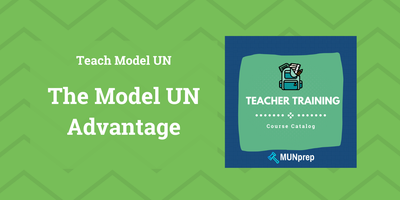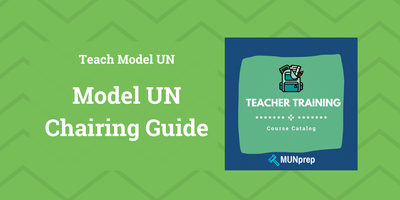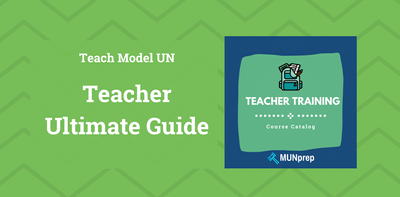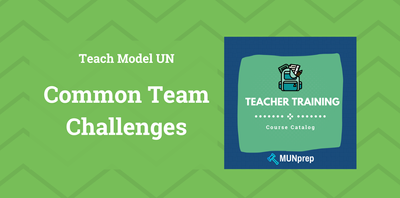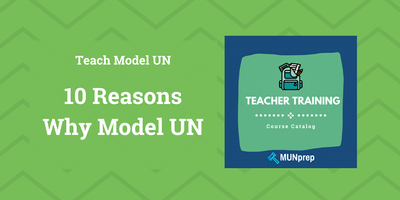Teaching Model UN: The Four Essentials
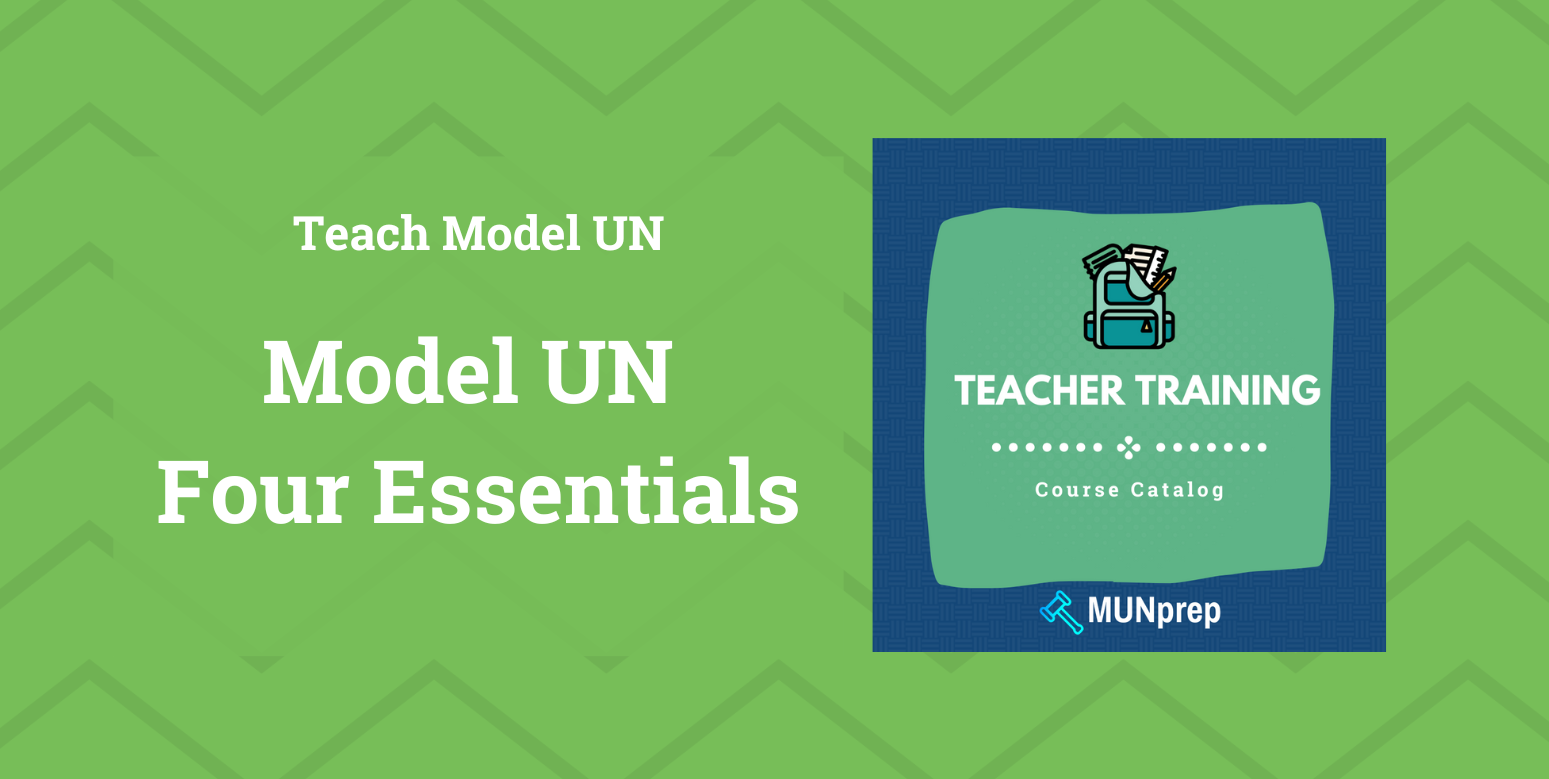
Preparing a Model UN team for their first conference involves more than just brushing up on current events. It requires a deep understanding of how Model UN simulations operate, from the formalities of debate to the nuances of negotiation and problem-solving. To equip your team for success, focus on teaching them the following four essential areas: Rules of Procedure, Diplomacy, Research, and Problem-Solving. Mastery of these elements will empower your delegates to engage meaningfully, represent their countries effectively, and navigate the challenges of their first conference with confidence.
1. The Rules of Procedure
Why:
The Rules of Procedure form the backbone of any Model UN conference. They ensure that debate is structured, orderly, and fair. Without a firm grasp of these rules, delegates may struggle to participate effectively, missing opportunities to influence the discussion or advance their positions. Understanding the rules allows delegates to navigate the formal aspects of debate, including speaking, motioning, and voting, which are critical to shaping the outcomes of committee sessions.
What They Are:
The Rules of Procedure include a range of points and motions that delegates use to participate in debate. Points, such as Points of Order or Points of Information, allow delegates to clarify procedural questions, address errors, or seek information. Motions, on the other hand, are used to move the debate forward, whether by setting the agenda, opening and closing speakers’ lists, or introducing amendments.
Formal debate itself is a structured format where delegates speak in turn, according to a speakers’ list, on the topic at hand. This structure ensures that all voices are heard and that the committee can progress towards drafting and voting on resolutions.
How to Practice:
Practice is key to mastering the Rules of Procedure. Regular mock sessions where students can apply points and motions in a controlled environment help them become familiar with the flow of debate. Start with simple scenarios and gradually introduce more complex situations, such as moderated and unmoderated caucuses, to build their confidence. Emphasize the importance of timing and precision in using motions, as well as the need for respectful and diplomatic language during formal debate.
Learn More:
For a deeper dive into the Rules of Procedure, including a comprehensive guide to points and motions, visit our article on the Basics of MUN Points and Motions
2. Diplomacy
Why:
Diplomacy is at the heart of Model UN. It’s the art of negotiation, persuasion, and building alliances, all while maintaining a respectful and constructive tone. Teaching diplomacy helps delegates navigate the complex social dynamics of a conference, where they must advocate for their country’s interests while also finding common ground with others. Successful diplomacy can turn potential adversaries into allies and ensure that a delegate’s proposals gain the necessary support to be adopted.
What It Is:
Diplomacy encompasses a range of skills, including effective communication, cultural sensitivity, negotiation, and problem-solving. At its core, diplomacy is about understanding the perspectives of others, articulating one’s own position clearly, and finding mutually acceptable solutions. It requires not only intellectual acumen but also emotional intelligence—knowing when to push forward and when to compromise.
How to Practice:
To develop diplomatic skills, encourage your students to engage in role-playing exercises where they must negotiate agreements, resolve conflicts, or build coalitions. These simulations should reflect the diversity of issues and stakeholders they will encounter in a real conference. Providing feedback on their communication style, ability to listen, and effectiveness in negotiation will help them refine their approach. Incorporating discussions on real-world diplomatic scenarios can also give students insight into how diplomacy is practiced on the global stage.
Learn More
Explore the essential skills that make a good diplomat in our article the Basics of MUN Diplomacy. This article explores the importance of communication, cultural sensitivity, and negotiation, and offers practical advice on how to cultivate these abilities.
3. Research
Why:
Thorough research is the foundation of any successful Model UN experience. Delegates must be well-versed in both the general topic of debate and the specific policies and positions of the country they represent. Without solid research, delegates are at a disadvantage, unable to effectively argue their positions, propose informed solutions, or counter the arguments of others. Strong research skills allow delegates to confidently engage in debate, support their positions with evidence, and contribute meaningfully to the resolution drafting process.
What It Is:
Research in Model UN involves gathering information on the topics being discussed, understanding the history, culture, and politics of the country being represented, and identifying key issues and possible solutions. It’s not just about collecting facts; it’s about analyzing information to develop a nuanced understanding of the country’s position and how it aligns with or opposes the interests of other states.
How to Practice:
Break down the research process into manageable stages. Start by having students read the background guide for their committee and identify key priorities for further research. From there, guide them through the process of building a comprehensive country profile, focusing on areas such as political structure, economic conditions, cultural values, and foreign policy. Encourage them to use reliable sources, such as UN databases, government websites, and credible news outlets, and teach them how to verify the accuracy and impartiality of the information they find.
Once the initial research is complete, students should return to their key priorities and refine their focus based on what they’ve learned. This iterative process will help them develop a clear, evidence-based position that they can defend in committee.
Learn More:
For a step-by-step guide on conducting research for Model UN, check out our article on the essentials of Model UN Research. This guide covers everything from reading the background guide to building a detailed country profile and refining research priorities.
4. Problem-Solving
Why:
Problem-solving is at the core of what delegates do in Model UN. It’s not enough to simply understand the issues; delegates must be able to propose viable solutions that can gain the support of other delegates and be implemented in the real world. Effective problem-solving requires creativity, strategic thinking, and a deep understanding of the issues at hand. Delegates who can craft well-thought-out solutions will not only contribute more meaningfully to the debate but also enhance their chances of success in the conference.
What It Is:
Problem-solving in Model UN involves developing solutions to the issues being debated in committee. This process requires delegates to think critically about the challenges their country faces, consider the perspectives of other countries, and propose actions that are both innovative and realistic. It’s a combination of ideation—coming up with creative ideas—and marketing—convincing others of the value of those ideas.
How to Practice:
Start by teaching students how to brainstorm and evaluate potential solutions. Encourage them to think creatively and consider different angles, such as long-term impacts, feasibility, and alignment with their country’s policies. Once they have a set of ideas, guide them through the process of refining these into concrete proposals that can be presented in committee.
It’s also important to teach students how to "market" their solutions—how to make them appealing and memorable to other delegates. This might involve simplifying complex ideas, using acronyms to help others remember key initiatives, or identifying a marquee solution that will stand out in the minds of the committee members.
Learn More:
Learn more about the problem-solving process, including tips for coming up with creative solutions and making your position paper GROOVY!
Starting your team off right
By focusing on these four areas—Rules of Procedure, Diplomacy, Research, and Problem-Solving—you can equip your Model UN team with the skills they need to navigate their first conference confidently. These essentials will not only help them participate effectively but also set the stage for future success in Model UN and beyond.

